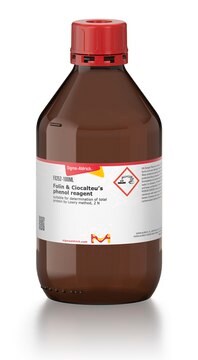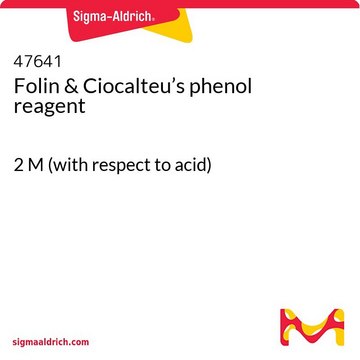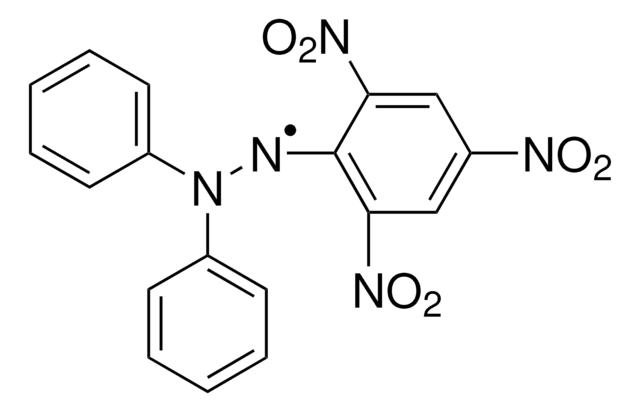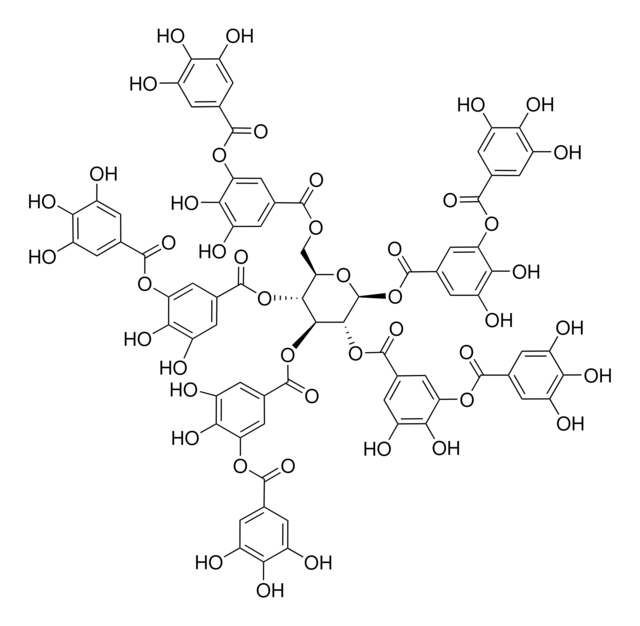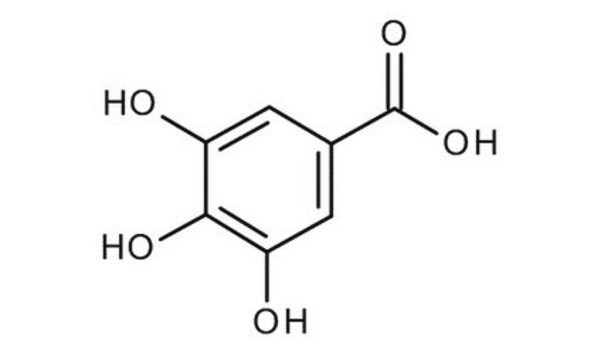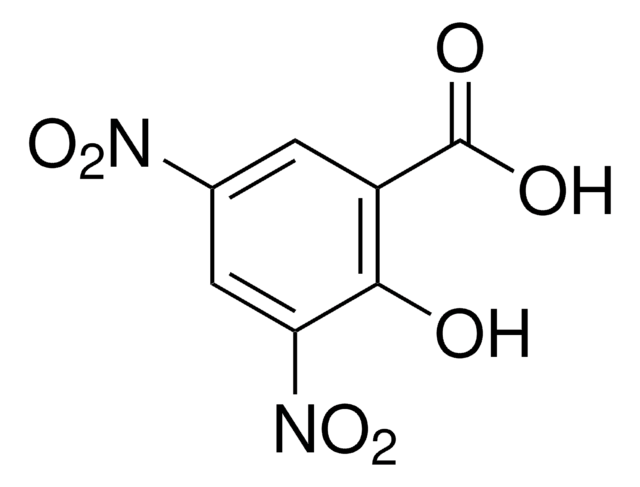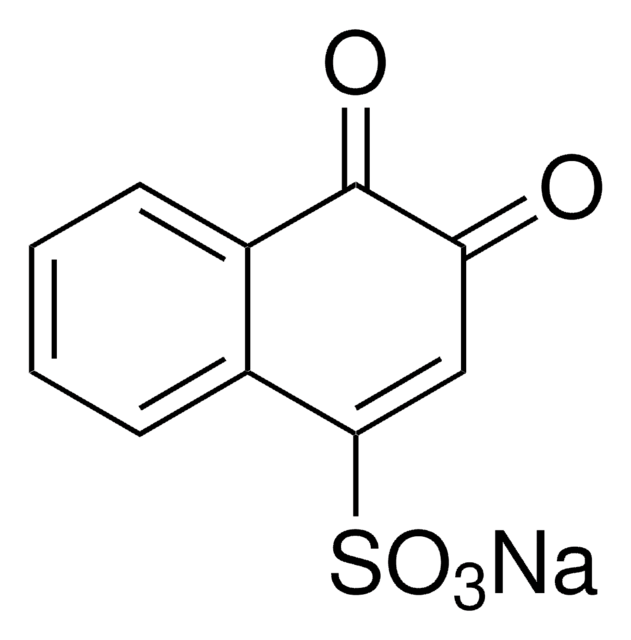47742
Folin-Denis′ reagent
for the determination of phenols
Sign Into View Organizational & Contract Pricing
All Photos(1)
About This Item
Recommended Products
quality
for the determination of phenols
Quality Level
specific analyte(s)
phenol
technique(s)
photometry: suitable
refractive index
n20/D 1.352
application(s)
food and beverages
general analytical
Looking for similar products? Visit Product Comparison Guide
General description
Folin-Denis′ reagent can be prepared by mixing mixture of sodium tungstate and (phospho)molybdic acid in phosphoric acid. This reagent is generally used in determination of phenolics in urine.
Folin-Denis′ reagent has been used for the determination of total phenolic compounds present in the peanut hulls spectrophotometrically.
Application
Folin-Denis′ reagent has been used in the determination of total phenolics in the fruits of Silybum marianum using spectrophotometry technique.
signalword
Warning
hcodes
Hazard Classifications
Eye Irrit. 2 - Met. Corr. 1 - Skin Irrit. 2
Storage Class
8B - Non-combustible corrosive hazardous materials
wgk_germany
WGK 2
flash_point_f
Not applicable
flash_point_c
Not applicable
Choose from one of the most recent versions:
Certificates of Analysis (COA)
Lot/Batch Number
Don't see the Right Version?
If you require a particular version, you can look up a specific certificate by the Lot or Batch number.
Already Own This Product?
Find documentation for the products that you have recently purchased in the Document Library.
Customers Also Viewed
Scavenging effect of methanolic extracts of peanut hulls on free-radical and active-oxygen species
Yen, Gow Chin, and Pin Der Duh.
Journal of Agricultural and Food Chemistry, 42 (3), 629-632 (1994)
Federica Giusti et al.
International journal of food sciences and nutrition, 69(5), 557-565 (2017-11-10)
Consumption of legumes has become popular among health-conscious consumers due to the high levels of nutrients such as proteins, dietary fibres, minerals, vitamins and micronutrients like polyphenols. Ten legumes cultivars organically and conventionally grown were compared regarding their chemical profiles
Phenolic Compound Biochemistry
Wilfred Vermerris, Ralph Nicholson
Springer Science & Business Media, 152-152 (2007)
Claudia Giuliani et al.
Fitoterapia, 130, 210-218 (2018-09-15)
Silybum marianum (L.) Gaertn (Asteraceae) is a valuable medicinal plant utilized for silymarin production. However, only fragmentary and contradictory information about silymarin localization within S. marianum fruit are available. In this work, a twofold research approach was adopted in order
Our team of scientists has experience in all areas of research including Life Science, Material Science, Chemical Synthesis, Chromatography, Analytical and many others.
Contact Technical Service